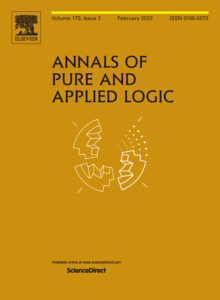APAL
Publication Types:

Quantifier-free Epistemic Term-Modal Logic with Assignment Operator
In standard epistemic logic, the names and the existence of agents are usually assumed to be common knowledge implicitly. This is unreasonable for various applications in computer science and philosophy. Inspired by term-modal logic and assignment operators in dynamic logic, we introduce a lightweight modal predicate logic where names can be non-rigid, and the existence of agents can be uncertain. The language can handle various de dicto/de re distinctions in a natural way. We characterize the expressive power of our language, obtain complete axiomatisations of the logics over several classes of varying-domain/constant-domain epistemic models, and show their (un)decidability.
(Largely extended journal version of the AiML18 paper)

Inquisitive Logic as an Epistemic Logic of Knowing How
In this paper, we present an alternative interpretation of propositional inquisitive logic as an epistemic logic of knowing how. In our setting, an inquisitive logic formula α being supported by a state is formalized as “knowing how to resolve α” (more colloquially, “knowing how α is true”) holds on the S5 epistemic model corresponding to the state. Based on this epistemic interpretation, we use a dynamic epistemic logic with both know-how and know-that operators to capture the epistemic information behind the innocent-looking connectives in inquisitive logic. We show that the set of valid know-how formulas corresponds precisely to the inquisitive logic. The main result is a complete axiomatization with intuitive axioms using the full dynamic epistemic language. Moreover, we show that the know-how operator and the dynamic operator can both be eliminated without changing the expressivity over models, which is consistent with the modal translation of inquisitive logic existing in the literature. We hope our framework can give an intuitive alternative interpretation of various concepts and technical results in inquisitive logic, and provide a powerful and flexible tool to do inquisitive reasoning in an epistemic context.
